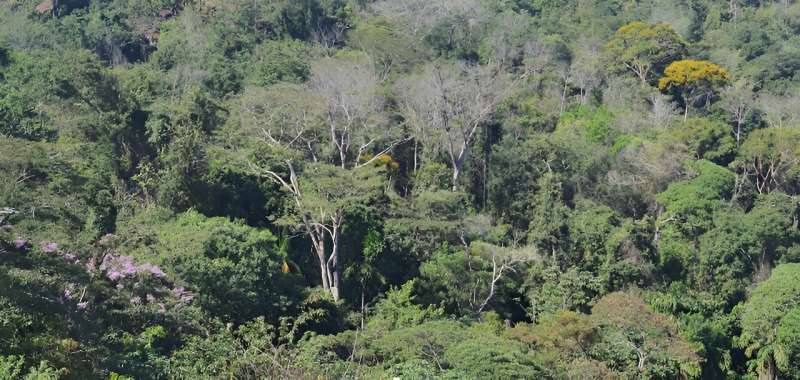This article has been reviewed according to Science X's editorial process and policies. Editors have highlighted the following attributes while ensuring the content's credibility:
fact-checked
peer-reviewed publication
trusted source
proofread
Scientists identify ways landowners in rural Brazil can find win-win situations

Across the globe, and particularly in Brazil, lies an embarrassment of riches that also stage a showdown as mitigating climate change and protecting biodiversity square off against growing food.
In this week's Science of The Total Environment, scientists from and once affiliated with Michigan State University's Center for Systems Integration and Sustainability (MSU-CSIS) identify ways for landowners in rural areas to be able to capitalize on win-win situations, whether they have fruitful land or not.
Like in areas across the world, forests which are havens for biodiversity and powerful in fighting climate change have been converted to agricultural lands. In the Mato Grosso region of Brazil in the Amazon biome, the authors of "Balancing food production with climate change mitigation and biodiversity conservation in the Brazilian Amazon," looked at the country's legal reserves—a portion of every private rural property that landowners should allow to be covered with natural forest, according to the Brazilian Forest Code.
However, many rural properties do not have the legal reserves, deemed a "deficit," according to lead author Ramon Bicudo. The work seeks to understand and model ways to balance climate change- and biodiversity- positive forests with agriculture lands which have replaced forests.
In many regions where deficit is high in areas strong in food production. In this case, if landowners replace food production lands with natural forests, the economic impact and the impact on food production will be high. However, many other regions where there are legal reserve deficits but with lower food production standards, there is higher potential to stock carbon and to enhance biodiversity conservation.
"Using our results, landowners with great deficits in great production areas, instead of 'losing' production lands for restoration, can compensate their deficits within other landowners' properties in other regions within the Amazon biome where food production is low," Bicudo said. "We believe that the most benefited group can be landowners."
This "green land market" where the opportunity created by enforcing landowners to have legal reserves may create incentive for landowners to search the best areas to restore, which will economically benefit regions with lower food production potential through an ecosystem restoration market.
"Research efforts like this one are important for sustainability not only in Brazil, but also across the entire telecoupled world, because a large amount of food produced in Brazil is exported to distant countries such as China and many European countries," said Jianguo "Jack" Liu, Rachel Carson Chair in Sustainability and director of CSIS.
In addition to Bicudo and Liu, the article was written by James Millington, Andrés Viña, Yue Dou, Emilio Moran, Mateus Batistella, and David Lapola.
More information: Ramon Felipe Bicudo da Silva et al, Balancing food production with climate change mitigation and biodiversity conservation in the Brazilian Amazon, Science of The Total Environment (2023). DOI: 10.1016/j.scitotenv.2023.166681
Journal information: Science of the Total Environment
Provided by Michigan State University





















